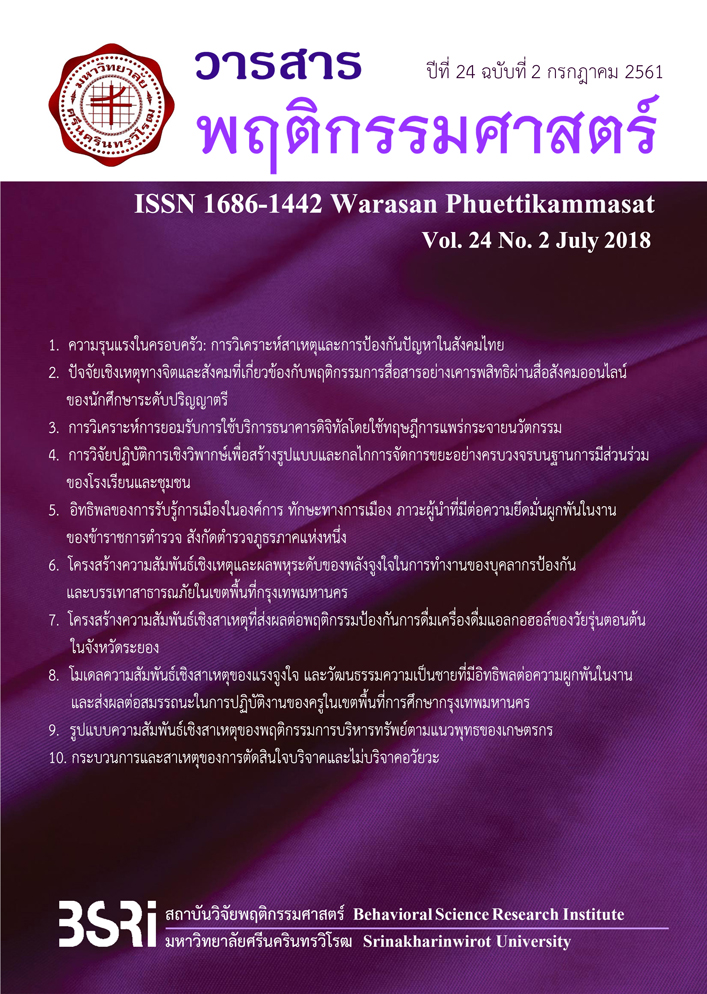รูปแบบความสัมพันธ์เชิงสาเหตุของพฤติกรรมการบริหารทรัพย์ตามแนวพุทธของเกษตรกร
Keywords:
farmers, financial management behavior with a Buddhist approachAbstract
This research aimed to examine the casual relationship of financial management behavior based on Buddhism. This was a casual research to investigate the causes of financial management behavior through structural equation modeling aimed, and the goodness-of-fit test of the empirical data from the sampling unit, which included four hundred and fifty farmers in Sri-Saket province.
A one-stage cluster sampling was adopted for the purposes of research, the villages were the cluster and farmers in each household were the sampling unit. The findings revealed the causes of financial management behavior with a Buddhist approach and identified farmers with poor financial management behavior. The instrument for data collection was a six-level rating scale, with a reliability between .805 to .911. The data was analyzed by structural equation model analysis. According to the findings, the revised model followed the hypotheses presented goodness of fit with empirical data (c2 /df = 1.86, RMSEA = .047, GFI = .95, AGFI = .93, PGFI = .62, NFI = .99, TLI = .99, CFI = 1.00, PNFI = .74, RMR = .0065, SRMR = .024). The results of the test indicated that the direct effect influenced financial management behavior in a Buddhist approach for farmers, i.e., economic ethics, with an effect size of .96. Other factors had an indirect effect influencing financial management behavior included knowledge, with an effect size of .71 and socialization, with an effect size of .56.
Downloads
Downloads
Published
How to Cite
Issue
Section
License
Behavioral Science Research Institute, SWU
114 Sukhumvit 23, Bangkok 10110, Thailand.
Tel.02-649-5000 # 17600



